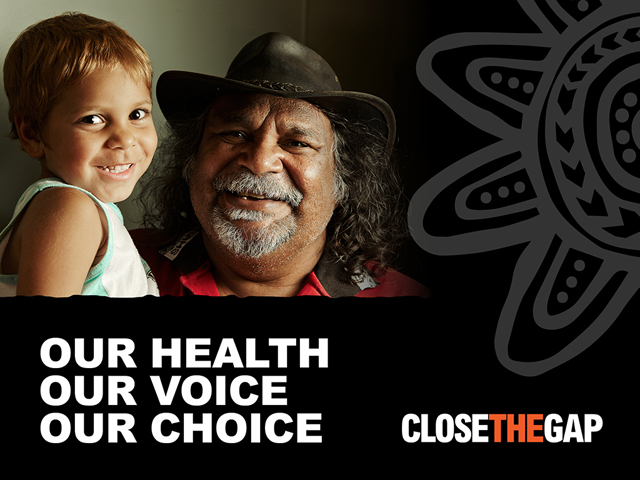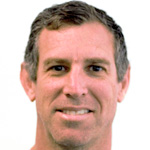
Debates continue to simmer over significant issues in the psyche of Australia.
Do we become a republic?
Do we change the date of Australia Day?
Do we change our flag and national anthem?
Do we constitutionally recognise First Australians?
Are they significant though?
Will these changes close the gap for Indigenous Australians?
Do we listen to what indigenous Australians think about these issues or any issues?
Deal with the crisis first
Prime Minister Scott Morrison has told Parliament he does not know when Indigenous children will have the same opportunities as non-Indigenous Australians.
If this is not a crisis, then I am not sure what is.
The Opposition Leader (Bill Shorten) and Mr Morrison spoke frankly on February 14 as they made statements about the annual Closing the Gap report that showed minimal progress had been made towards reducing Indigenous disadvantage.
Mr Morrison said the current situation was "unforgivable".
"I want Aboriginal and Torres Strait Islander children to have the same opportunity as any other child in this country. But, it's not true for Aboriginal and Torres Strait Islander children growing up in Australia today, and it's never been true and I don't know when it will be true."
This year's Closing the Gap report revealed most targets were still off track.
Only two of seven targets showed positive progress: Year 12 attainment and early childhood education.
Other goals around life expectancy, child mortality, employment and education showed very limited improvements.
My thoughts continue to vacillate between debates and maybe I have preferred to try and take a middle ground with many of them, but I am often left confused and non-committal.
What can I do?
Support National Close the Gap Day March 21
National Close the Gap Day on March 21 (NCTGD) is a national day of action to pledge support for achieving Indigenous health equality by 2030. Each year the support for NCTDG continues to grow and last year people all over the country took part in events to create awareness of the Close the Gap Campaign. NCTGD aims to bring people together, to share information — and most importantly — to take meaningful action in support of achieving Indigenous health equality by 2030.
With continued support from the public, this day can ensure the Australian Government continues to work with Indigenous communities, commit additional funding and invest in real partnerships.
My four years teaching in Alice Springs and the four short trips I have made to the Torres Strait taught me a lot about the significant issues facing indigenous Australians. I also saw the great strides indigenous leaders; men, women and children, were making to change their lives and the lives of their families. Many of these success stories continue to be ignored and the voice of indigenous people continue to be suppressed and not heard.
The Christian church has had a positive role in the lives of many indigenous people, but also has been the cause of much of the pain, oppression and hurt in people. Our Christian Prime Minister has the opportunity to stand against racial sin and facilitate a lasting legacy of his leadership.
Key Messages
Everyone deserves the right to a healthy future; particularly in a rich country like ours. Yet depending on where they are around the country, Aboriginal and Torres Strait Islander Peoples can live 10, 15, sometimes 20 years less than other Australians. Past and present governments have created barriers to good health for Indigenous Australians, and this is having a profound impact on families and communities.
But it doesn’t have to be this way.
Aboriginal and Torres Strait Islander communities already have many of the solutions to these problems. They are simply asking that they be heard. We need our politicians to start listening and supporting them with the resources they need.
The image of God is in all people. There are many times we are quick to judge and not see people the way God sees them. We can be the people who challenge our employers and our politicians to seek to increase opportunities for indigenous people, to access the resources they need to live with dignity, to live with sufficiency, rather than scarcity and the spirit of oppression surrounding many.
Let’s call out what racism, privilege and injustice is to God – they are sins and we need to ask forgiveness for the hurt caused in the past.
Racism, the expectancy of privilege and injustice can cripple the image of God in human beings. Through restoration and reconciliation, we can face the future together.
Hear their stories.
Share their stories.
Listen.
Justice can be restored.
 Russell Modlin teaches English and Physical Education at a Christian School on the Sunshine Coast. He is married to Belinda and they have three children.
Russell Modlin teaches English and Physical Education at a Christian School on the Sunshine Coast. He is married to Belinda and they have three children.
Russell Modlin’s archive of previous article can be found at www.pressserviceinternational.org/russell-modlin.html

Russell Modlin is in his 30th year as a Secondary English and Physical Education Teacher. He has taught in Mackay, Brisbane, Alice Springs and currently on the Sunshine Coast. He is married to Belinda (26 years) and they have three sons- 2 have finished High School, 1 to go!
Russell Modlin’s archive of previous article can be found atwww.pressserviceinternational.org/russell-modlin.html